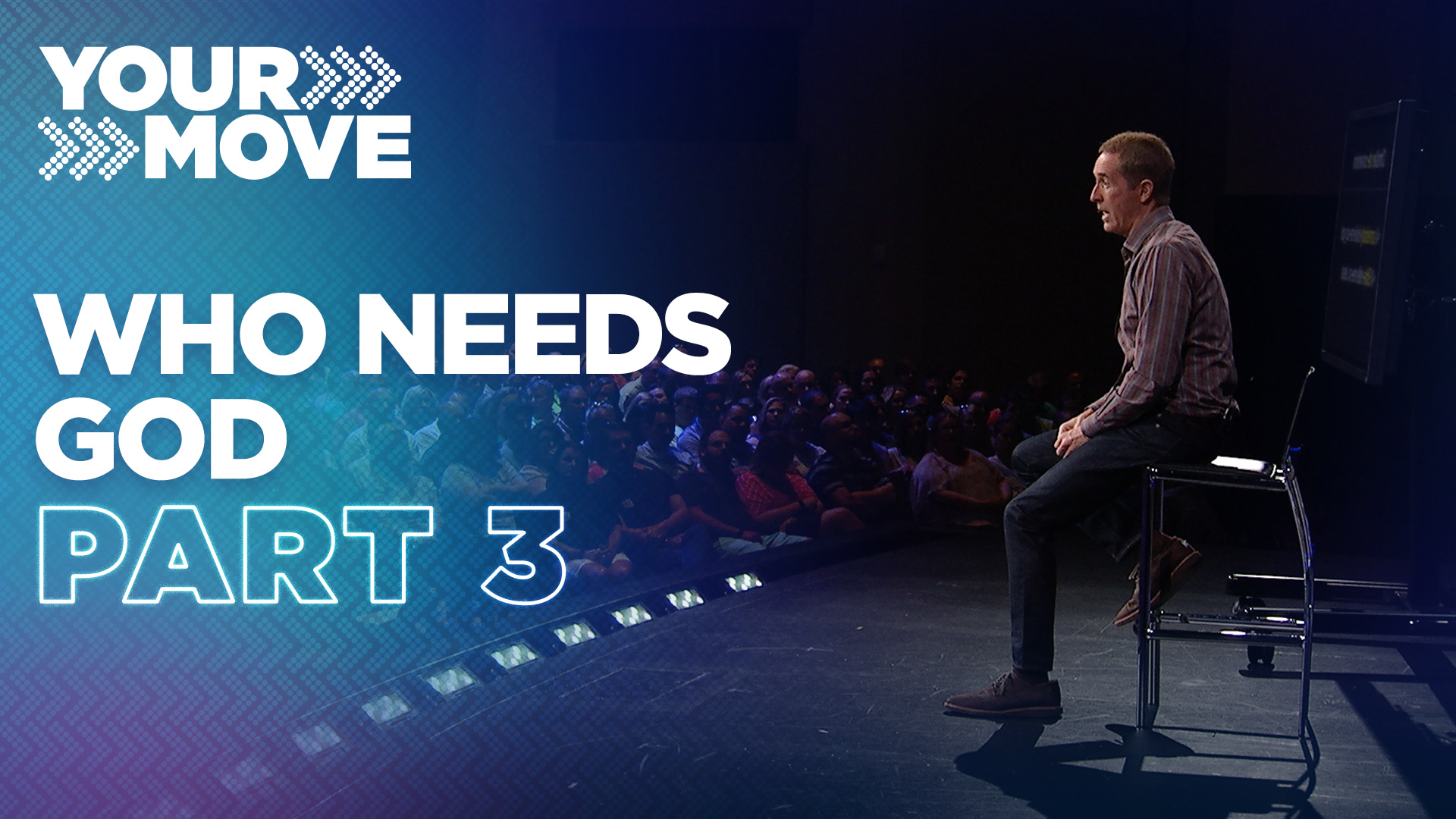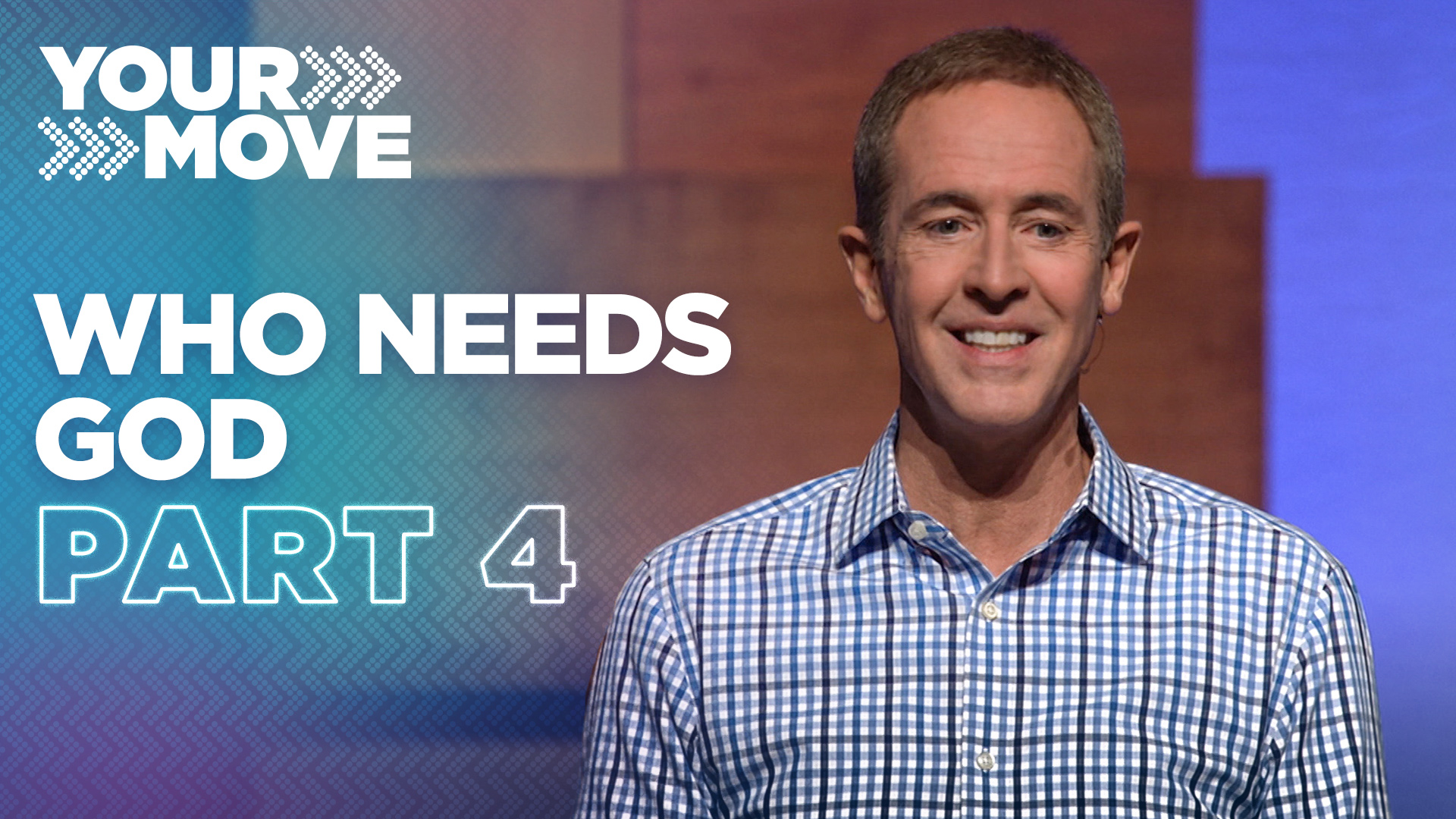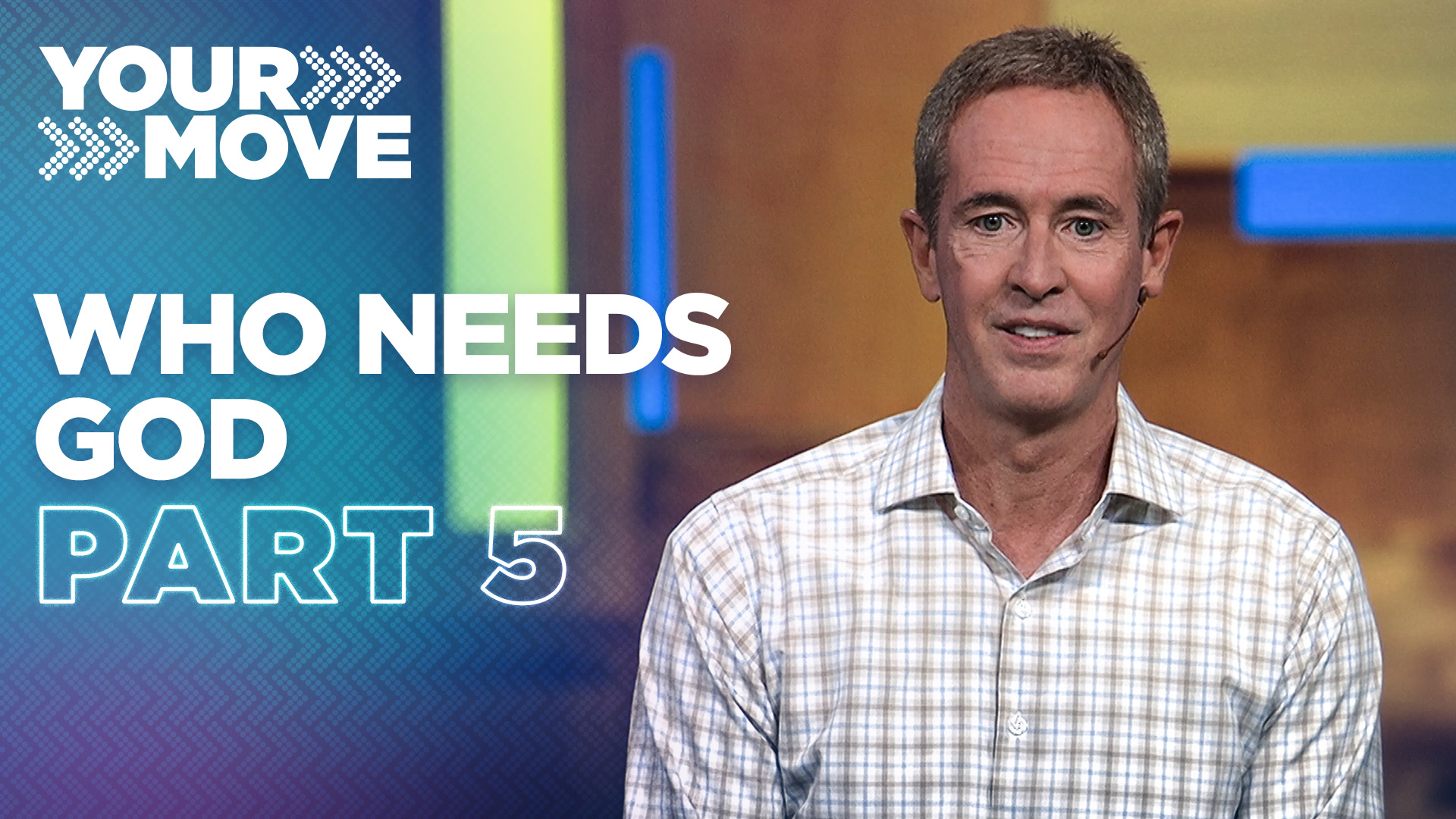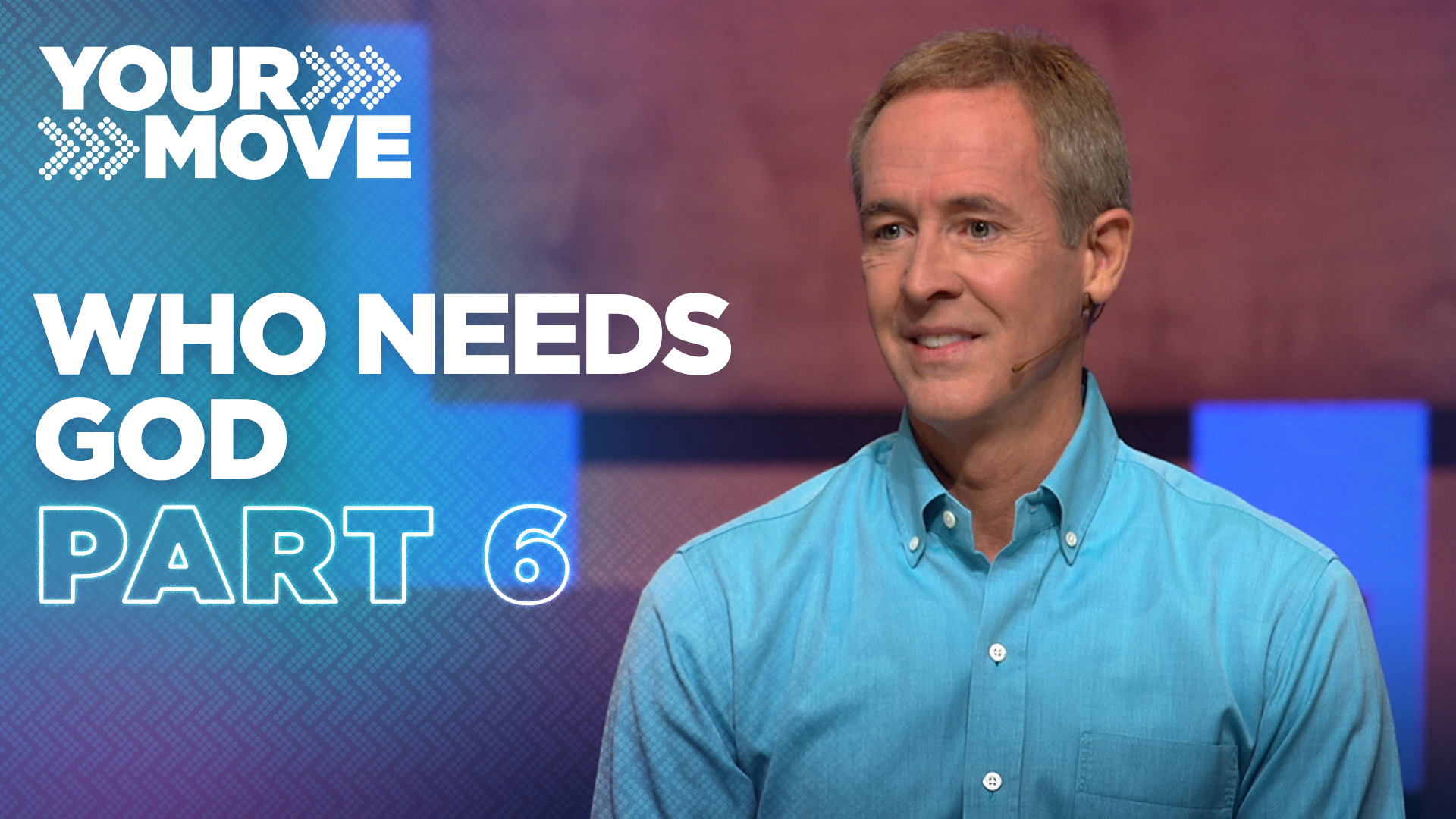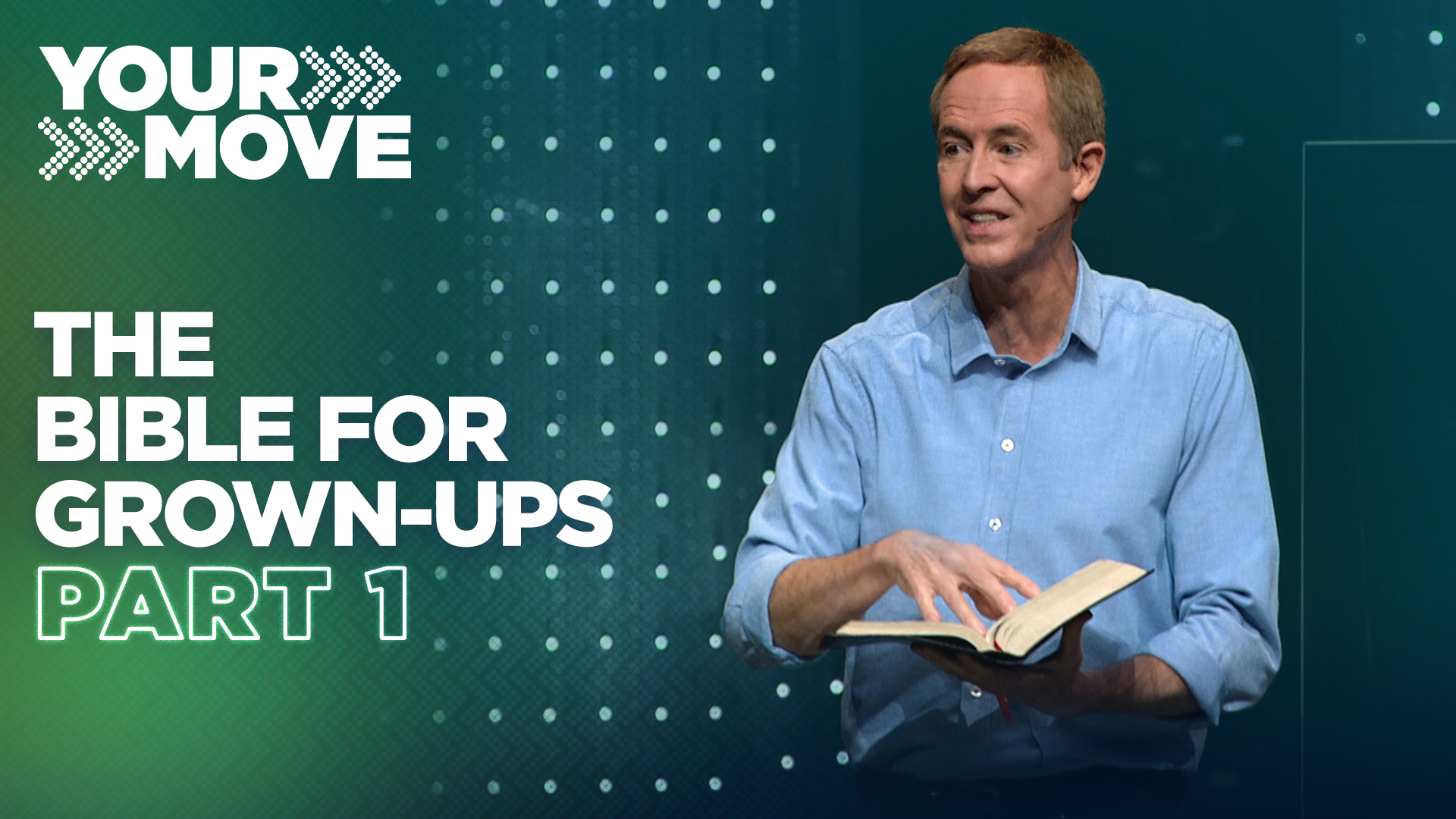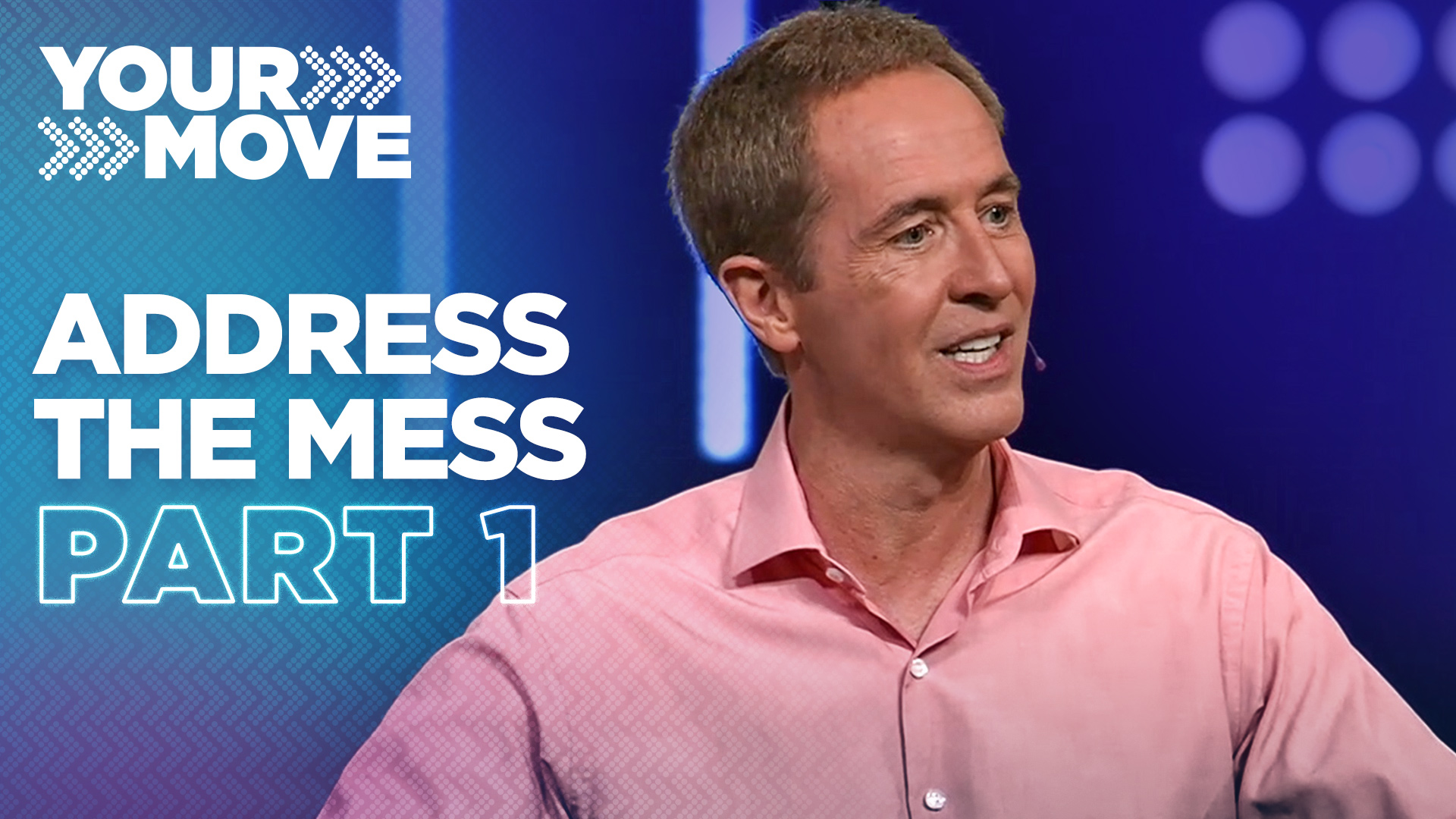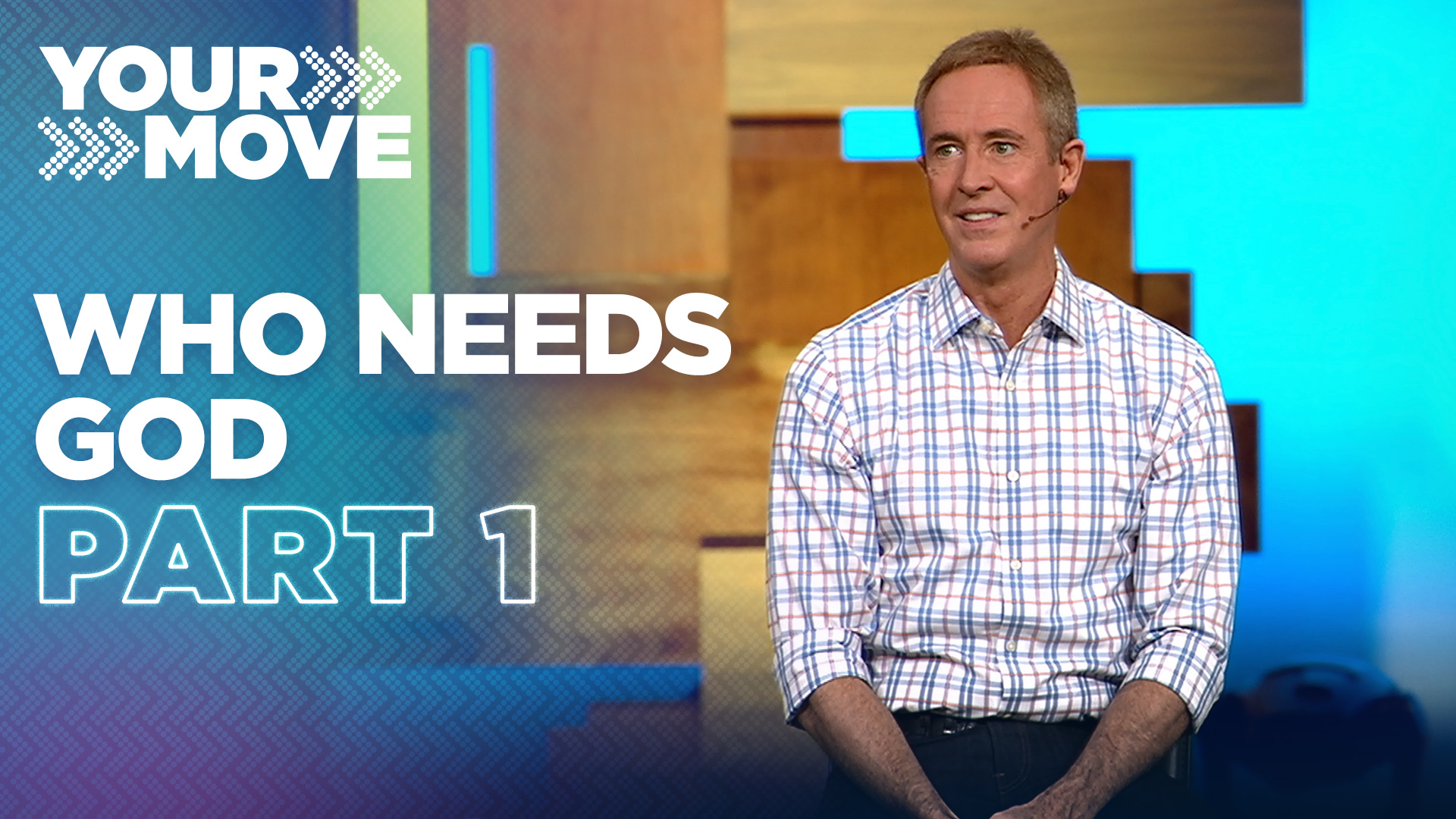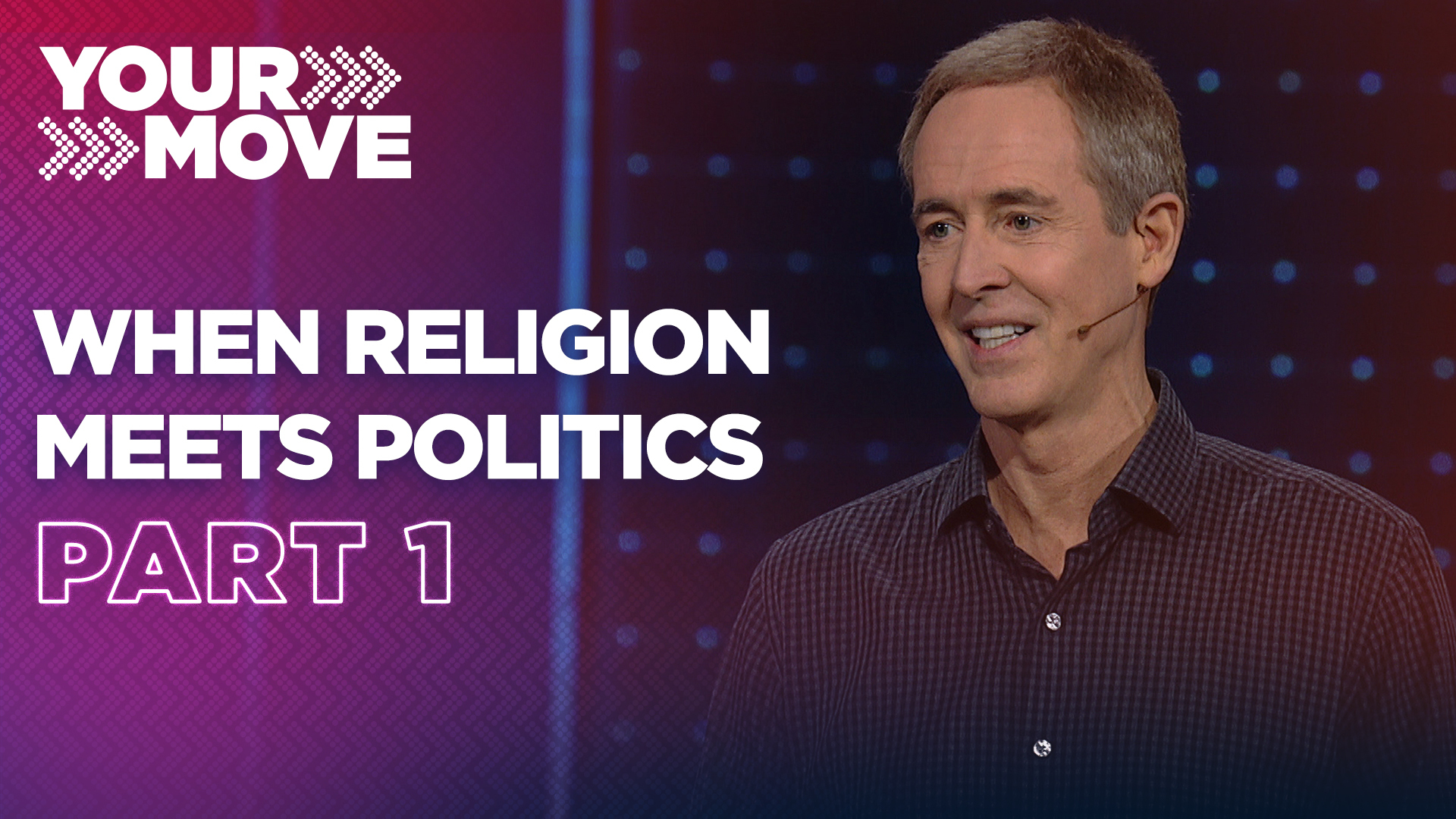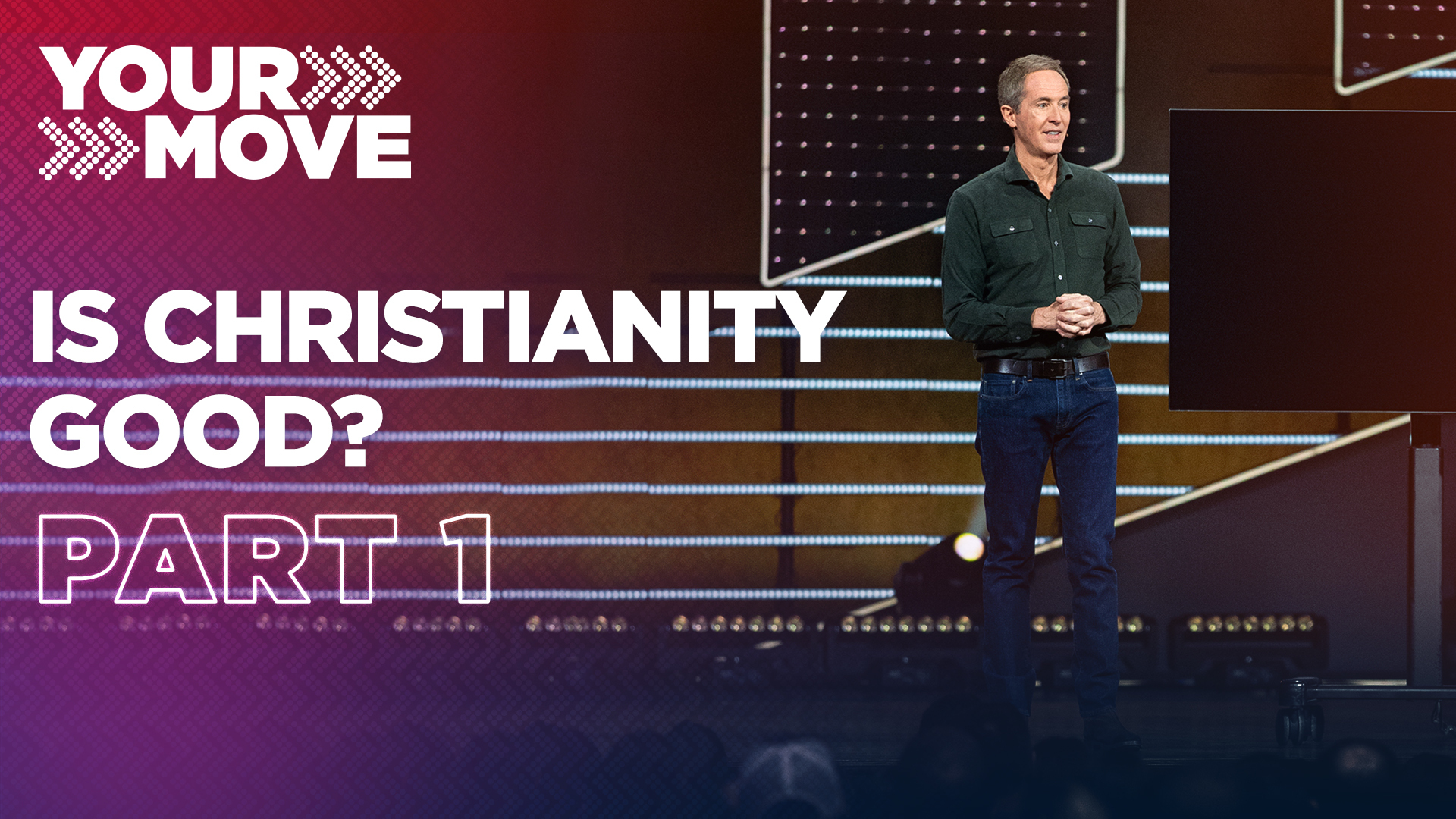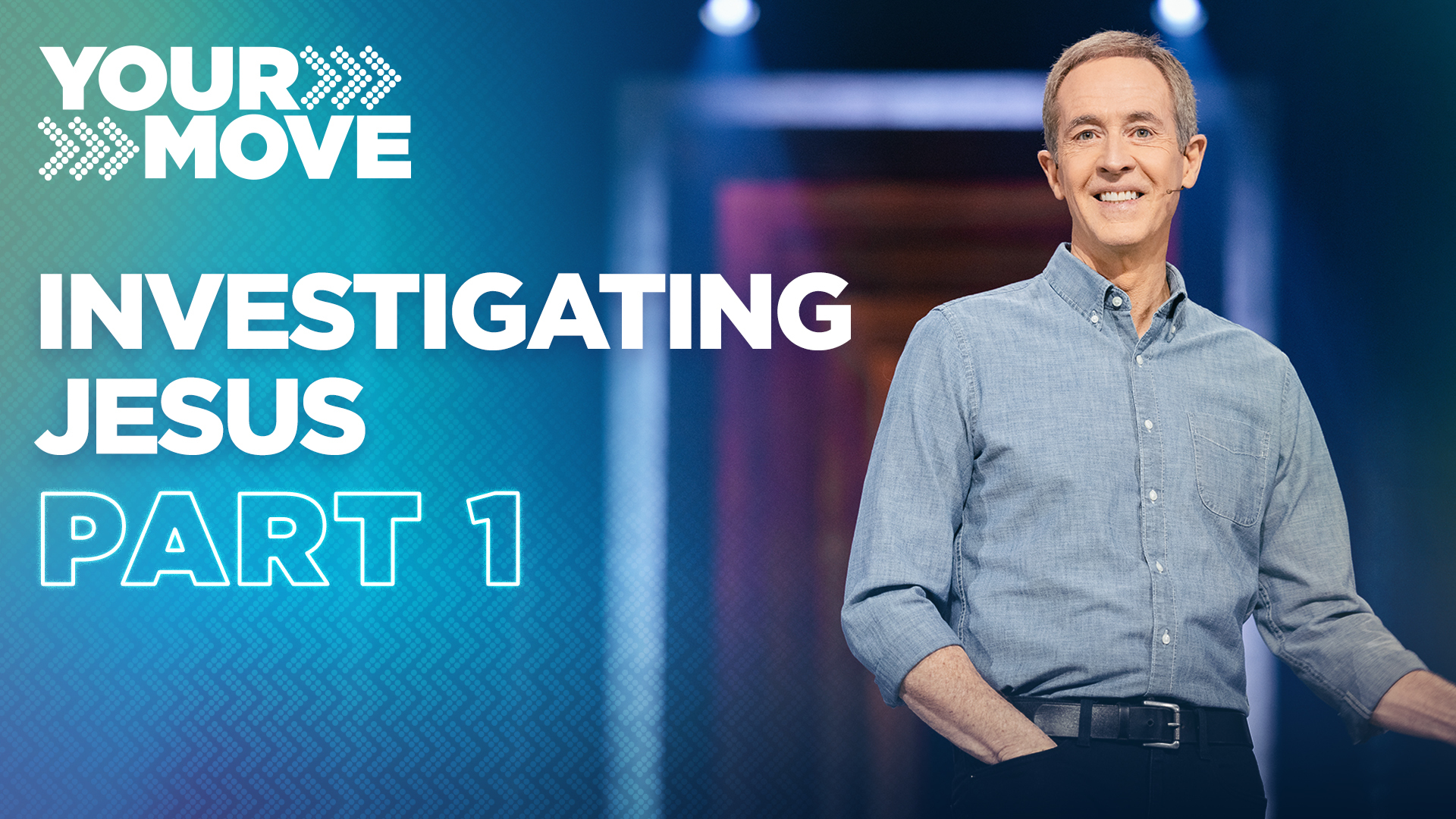What if the God you walked away from never existed to begin with?
1. Where did your view of God originate?
2. Did you inherit any of the following “growing up gods”? If so, which one(s)?
- Bodyguard god: prevents bad things from happening
- On-demand god: honors fair and selfless requests
- Boyfriend god: makes its presence known
- Guilt god: controls through guilt and fear
- Anti-science god: forces trade of the undeniable for the unreliable
- Gap god: becomes the explanation for the unexplainable
3. If at any point in life you decided to walk away from faith or religion, would you say that any of these “growing up gods” contributed to that decision?
4. To what extent do you associate religion with guilt?
5. During this episode, Andy said the choice between God and science is a false alternative, and “if everything were explained and explainable, it would not explain away God.” Do you agree? Why or why not?
NOTE: The following content is a raw transcript and has not been edited for grammar, punctuation, or word usage.
We started this series last week called, Who Needs God. And I’m super excited about this series. I don’t think any of us would argue with the fact that there are certain things about theism, and about God, and about Christianity, in particular, that are really unsettling. They’re just unsettling. On the other hand, there’s something about a Godless universe, where everything is reduced to the laws of physics, chemistry and biology. For many of us, that’s unsettling as well. And so, a lot of us, in fact more and more people in this country, would say, “You know what? To be honest, I kind of feel stuck in the middle. I kind of feel stuck in the middle.”
“When it comes to religion, and when it comes to Christianity in particular, when it comes to theism, I have doubts. But when I think about stepping over into the world of atheism, that’s not appealing, either. In fact, that kinda leaves me with a nagging sense of despair, and so I’m caught in the middle. Do I want to opt for despair? There’s no purpose and all there is is life under the sun, as Solomon says. Life is bookended by birth and death and that’s it, and I can try to mine some purpose out of that and kinda pretend that something matters, but to be honest, I don’t know. That just feels like despair, but over here it just feels like doubt, and I just feel stuck in the middle.” And maybe you’re in that category, and if so, it’s a growing percentage of our population.
So, that’s the group that I would like to talk to specifically. The good news is this, if you’re losing faith in God, you should not be embarrassed, this has been happening since the beginning of the history of the world. Humanity has been disbelieving in gods since the beginning.
Once upon a time, the most sophisticated civilization in the world worshipped the sun. Some centuries later, the most sophisticated civilization in the world worshipped Zeus. And then the Roman Empire, they worshipped Jupiter. And now there aren’t many people who worship the sun, they gave up on that god. There aren’t many people who worship Mars or Jupiter, they gave up on that god. There’s still a few people, but not many people, who worship Zeus, they gave up on that god. So, people quit believing in a god or gods all the time. In fact, Richard Dawkins sums it up well. He says, he writes this, “We are all atheists about most,” this is such a cool statement, “We are all atheists about most of the gods that humanity has ever believed in. Some of us just go one god further.”
The atheists, they say we’re gonna get rid of all the gods. Here’s something interesting. The early Christians, first-century Christians, were considered atheists by their culture. Why? Because they did not believe in the Roman gods. They didn’t believe in the Roman pantheon of god. They didn’t believe in Jupiter. They didn’t worship Mars. And so, the culture, and even the barbarian cultures, they considered the Christians atheists, because they no longer worshipped the gods. They didn’t embrace the deified Caesars, so they were considered atheists. But the message of the Christians to the pagans was this: “You’ve got the wrong God. You’ve got the wrong God. We’re not atheist. We believe in a God, we just believe in a different God and we think you pagans have the wrong God.”
So, I believe that tension persists today, and I think it’s one of the reason perhaps you’ve, if I could be so bold, that perhaps you have stepped back from a religion, or stepped away from religion. I’ve never heard a story of de-conversion from Christianity that had anything to do with Christianity. I mean, there are lots of reasons for walking away or stepping away from God, but when I hear these stories, it breaks my heart, because I sort of want to say, “Wait a minute, who told you that’s what God was like? Where did you get that picture”? Maybe, maybe, maybe. I know this is kind of arrogant. Maybe a little bold, but maybe, maybe, maybe you have the wrong god.
So, de-converting from Christianity, there’s two or three versions of this, maybe this is your version. Grew up in a religious environment, maybe not even Christianity, but just religion, in general. Grew up in a religious environment, experienced some sort of childhood conversion. And then you transition to an irreligious environment, like college, or your family moved, or you changed friends, but suddenly you’re in an irreligious environment, and you liked it a lot. In fact, you liked it better. And then you began asking adult questions about your childhood faith. And in response, you received faith-based answers, faith-based answers to your fact-based questions. And as one author wrote toward the end of his book, he just said this, he said, “One day, it dawned on me, I didn’t believe anymore”. Now this is such an important statement, here’s why. Because belief is such a strange thing. We’re gonna talk about this in a few weeks. You either believe or you don’t. You just do or you don’t. And if you don’t, you can’t say, “Well, I’ve changed my mind. I’ve decided to start believing.” It’s not that simple, is it? You can go to church, but that doesn’t mean you believe something.
You can stop going to church, that doesn’t mean you quit believing. Belief is such a strange thing, and for some people, maybe for you, you don’t know exactly when it happened. You’re not even sure exactly why it happened, but you’re driving to work one day, or you’re fixing your hair one morning, or you’re laying in bed at night thinking one night, or you’re driving home from being somewhere one night, and it just kind of dawns on you. “I don’t believe it anymore. I just, I don’t believe.” Maybe your story is a little bit different. Maybe your story hinges on something that happened, there was some big event. Your story may go more like this. Grew up in a religious environment, experienced a childhood conversion of some sort, and then you experienced a faith-crushing or a faith-devastating event that just wiped out your faith, and you began… Or at least hurt your faith. And so, you, too, began asking adult questions of your childhood faith. And again, you received faith-based answers to fact-based questions.
And your response may be what one blogger wrote, when she wrote, “One day it dawned on me, I couldn’t believe anymore. I wanted to believe, but I couldn’t believe anymore. I could not reconcile the God I grew up with with the reality of my life. I could not reconcile the God of my childhood, the way I was taught God was, and what God would do. I just could not reconcile God with reality. And I could not deny reality, so I couldn’t believe anymore.” Now, the interesting thing about de-conversion stories is that there are many de-conversion stories. In fact, yours might be a hybrid. Your story may be you grew up in a religious environment, had a childhood conversion. And you didn’t have anything bad happen to you, and you didn’t move away, or go off to college and lose your faith. You may just be one of those people who just started asking questions, and your parents couldn’t answer your questions, and your pastor gave you answers that were not satisfactory. And somebody gave you a few books, but they didn’t address your questions, and you may have just thought your way away from religion, in general, or away from Christianity. And every single version of Christianity that I’ve ever heard of that people stepped away from share these two characteristics, a Somebody Told Me So God, and a Bible Tells Me So Jesus. A Somebody Told Me So God. In other words, here’s how God was presented, here’s what I was taught God is like. Here’s what they said the Bible said about God. And so, that was my picture of God and when I stepped away, that’s who I stepped away from.
A Bible Tells Me So Jesus. Every time I ask a question, they would say, “But the Bible says… ” And I would ask, “But the Bible says, the Bible teaches, the Bible says, the Bible teaches.” And it was like, “Okay, okay, but what you’re telling me does not reconcile with my experience or reality.” So, in every version of Christianity where people walk away from Christianity, there’s always some version of a Somebody Told Me So God, and a Bible Tells Me So Jesus.
So, let’s start with a Somebody Told Me So God, the person that I think describes this transition, or this tension, the best. You grew up in church, you grew up in some kind of religious home, and God’s presented to you in a certain way, and so you just believe what your parents say. You believe what the priest says; you believe what your pastor says. You’re a child, so here’s what God is like. But the person I think that really, really, really gets to the core of the tension is a woman, a writer named Karen Armstrong. She’s a fabulous writer, and in her book, The Case For God, She writes this. This is so powerful, The Case For God.
She says, “Many of us have been left stranded with an incoherent concept of God. We learned about God at about the same time as we were told about Santa Claus. But while our understanding of the Santa Claus phenomenon evolved and matured, our theology remained somewhat infantile. Not surprisingly, when we attained intellectual maturity, many of us rejected the God we had inherited and denied that he existed.” And this may have been your experience. In fact, to some degree, I’ll own this, this is all of our experience. Because most of us were presented with the concept of God when we were very, very young. So, what I wanna do for the next few minutes is, I wanna talk about the gods that we grew up with. The gods that we grew up with that do not exist.
The gods that we grew up with that do not exist, and you should not believe in them anymore. The gods that we grew up with that perhaps are the gods, or one of the gods that you walked away from, and you should have walked away from, because that god doesn’t exist. But that doesn’t mean there isn’t a God who exists. So, real quick, our growing up gods. We’ll go through this list pretty quick. This first one, we’re going to call, Bodyguard God. A good God would not allow bad things to happen to good people. Since bad things never happen to good people, there must be a good God. No one has ever made that argument. That is not an argument for the existence of God. So, consequently, when we turn around and hold bad things happening to good people up against God and say, “There must not be a God because bad things happen to good people.”
The assumption is that somebody told you, or the assumption is somewhere along the way, God claimed that He would never allow bad things to happen to good people. This is not an argument for or against God, this is something someone told you. And on the surface, it makes sense. We’re gonna talk about it in a few weeks. But this is not an argument. This is certainly not a Christian argument for God, in the least. In fact, Christianity, and I don’t wanna make a case for Christianity, this is just a little side bar. Christianity actually started with a horrible thing happening to a very good person. If, at any point along the way, Christianity had taught or presented God as a God that never allows bad things to happen to good people, Christianity would have never made it out of the first century.
Because all the best people in Christianity, in the first century, all the heroes of the Christian faith, all of them were treated terribly by the first century Roman empire, and by the temple. So, just to let you know where we’re coming from, the idea that a good God who allows bad things to happen to good people can’t exist. I don’t know where you got that. You did not get that from Christianity, and no one that I know of has ever built a case for God based on a lack of evil in the world. So, here’s the point, if you lost faith in the Bodyguard God, good. Bodyguard God does not exist. You are exactly, exactly right. But for some of you, and I understand this. We’re gonna talk about it in detail in a few weeks. The whole idea of a God that will protect you from bad things, it was the defining characteristic of God for you growing up. It was the defining characteristic of God as it was explained to you in your church. It was the defining characteristic of God, everything hinged on, “God will protect good people from bad things.” Then you saw enough bad things happen to good people, and your faith collapsed. I think, this is just my opinion, you had the wrong God.
Close to, and similar to, Bodyguard God is On-Demand God. On-Demand God. Now, On-Demand God [laughter] is the God… You laugh, but you wish God was this way, and you treat God this way, and your faith gets a little shaken when God doesn’t act on demand. On-Demand God is the God who responds to fair and selfless requests the way we would. It’s the God that responds to fair… “Look, I’m not asking to change the world, I just need a date.” The fair [laughter] and selfless requests, “I’m not even asking for me to have a date, I want my daughter to have a date, please, I want my son to have a date.” Actually, I want them to get married and have me some grandchildren, but that’s about me. [laughter] It’s this On-Demand God, where we would expect God to do for us at least, I mean, I’m not even God, at least what I would do for somebody else. That God would answer my prayer, and again, I’m not asking for anything big. I just think if there’s a personal God, then when I need something or want something, God should do what I need and God should do what I want. But that’s not your experience, right? Why? You asked for an answer and heard nothing? You asked for a sign, maybe, and saw nothing. You asked for a miracle and you received nothing.
So, you decided, “You know what, there must not be a God.” And you’re right, On Demand God does not exist. It is okay to quit believing in On-Demand God. But here’s the question, who told you? Who told you that God always responds the way you expect? Who told you that God is supposed to, or under some obligation, or has to respond the way that you expect Him to respond? Where did that come from? That’s the Somebody Told You So God, and that God obviously doesn’t exist. And the truth is, I’m glad that God doesn’t exist. Because when I was 15 and 16 years old, if God had done for me what I asked God to do, my life would be a wreck, right? And some of you would be married to the wrong person, right? Because God would have… Okay, so the third one is a little, [laughter] I’m not trying to be cutesy, but I just want these to be memorable. The third version of God is Boyfriend God, okay? It could be Girlfriend God. Boyfriend God is the God whose presence is always felt, that we just… “I always sense the presence of God, because if God is with me”, we sing that, and we read that, “If God is with me, then I should feel His presence.” And then you get older, and you don’t sense the presence of anything. And you think, “God, I wanna feel your presence.” And you read literature, you read scripture, you read the Bible, or whatever you read, and it’s just kinda flat. It’s like, “Okay, God, I wanna sense your presence, but since I don’t feel His presence, He must not be present.” Well, said who? Who told you that? In fact, just a little sidebar: Did you know, you are the least aware of the things that are most constant? When you’re sitting in a room and the temperature’s perfect, you never turn to somebody and say, “Isn’t the temperature kinda perfect in here?”
[laughter]
I mean, Mother Teresa, she wrote about the fact, her confessor exposed to the whole world that she went for many, many, many, many months and years and never experienced or felt the presence of God. Well, Boyfriend God, Girlfriend God, or whatever you wanna call that, if you quit believing in that God, good. That God doesn’t exist either.
And then here’s the big one. This is the God, this is the version of God, that we run from the quickest, but we can’t seem to extrapolate ourselves from. It takes the longest to kind of unwind from this God. This is the God that chases us throughout our adulthood. This is the God that we just want, want, want, want, want to quit believing in, but somehow this God just haunts us. And very few people are ever able to finally just say, “I don’t believe in God,” who grew up with Guilt God. Guilt God. Guilt God controls you through guilt and fear, okay? If it’s enjoyable, the answer is, “No.”
[laughter]
If it’s sexual, the answer is, “No, no, no.” No, no, no. Right? This God loves you, but this God does not like you. This is the God who is love, but when it gets right down to it, He doesn’t like you very much. Now, let me ask you this. If you’ve grown up with guilt. In fact, again the Guilt God is so hard to escape. I mean, as soon as we can get away from the Guilt God environment, we run. But even though we get away from the Guilt God environment, something about the guilt just stays with us, and stays with us, and stays with us, and stays with us. I’ve talked to so many people who, “I just can’t seem to get it off of me. It’s horrible.” Who told you that about God? A priest, a pastor, your parents, where did that come from? That’s a Somebody Told Me So God. And if you are one of those lucky, lucky, lucky, lucky, lucky, lucky few people who grew up in a high-guilt environment, and you’ve been able to move so far away that you’ve quit believing in God, oh, congratulations. Isn’t life better without the Guilt God? I would say pray for your friends, but you don’t pray for them. Just hope that somehow they’re able to unwind from Guilt God.
And then here’s another one. This is where the church has done a horrible, horrible job. There’s the Anti-Science or the Anti-Science God. This is the God where you’re forced to choose between undeniable science, or unreliable religion. That’s the tension. It’s like, “Okay, I know what I’m taught and I know what they’re saying in school, and I know the advances and so this is undeniable. My mom and dad, grandma, my pastor, priest, come on, this is undeniable. I think religion is unreliable, religion’s always changing. Look at the negatives associated with religion, look what religion has done in the world. So, you’re asking me to ignore what is undeniable and embrace what is unreliable. I just can’t live with that tension and I just gotta go with what we know. I can’t continue to pretend, I can’t continue to defend, and I can’t continue to live my life with my eyes closed because, after all, it’s undeniable.” And when religion and science conflict, at the end of the day, if you are an honest person, science must win. But the message that we get sometimes, and the message you grew up with, and perhaps the reason you just walked away from God, is you grew up with a message that said, “Quit thinking, and just start believing. Quit thinking. Quit asking all those questions. Just believe. You just have to believe.”
Now, we’re gonna talk about this in a couple of weeks, too. This whole thing about belief, that religion’s just based on belief and Christianity’s just based on belief. That is not true. That’s something else that you were taught that is absolutely not, not, not, not true. Just a little commercial. We become a Christian through faith, but we’re not Christians because we just believe things. That’s absurd. And if you grew up with that kind of faith, no wonder you walked away. Again, Richard Dawkins nails it. Here’s what he says. “One of the truly bad effects of religion is that it teaches us that it is a virtue to be satisfied with not understanding. That it’s a virtue to say, ‘Well, we don’t have to know, we just believe.'” And here’s the deal, your Sunday School God probably could not be reconciled with science. I understand that.
Your Sunday School God, the God that your church left you with as a child or even a middle schooler, or high school, and it never went beyond that, that God probably cannot be reconciled with science. But here’s some good news. God or science is a false alternative. God or science is a false alternative. And I can prove that to you through your own behavior. Us Christians, when it comes to this. And if you’re agnostic or atheist or anti-Christian, let me just give you a little ammunition here, we are such hypocrites when it comes to this. But don’t share this outside the room, okay? Here’s what happens.
[laughter]
All the Christian parents and grandparents for just a minute, Christian parents. When your kids get sick, really sick, where do you take them? To the church? No. You take them to the doctor. And the doctor examines your child. “This just seems serious, and there’s this fever, we can’t get the… So, we’re gonna do a blood draw. We’re gonna look at their blood and we’re gonna send it off to a lab and we’re gonna call you tomorrow.” You are sitting by the phone. You got all your friends praying, everybody pray but you’re sitting by the phone. “Pray, but I’m sitting by the phone.” And the phone rings, and we got the labs back. And the person on the other end of the line says this, “We’ve looked at the labs and here’s what we’ve concluded. We really believe that God is trying to teach you something.”
[laughter]
It’s like, “No, no, no, no, no, no. We’re hypocrites. If we lean into science for our health, why would we reject science in any other capacity? It is a false alternative. Which means if you felt forced out of your faith, if you felt forced away specifically from Christianity because of something you learned in school or biology or chemistry or physics class or a math class, I am so sorry that someone presented you with the Anti-Science God. Because what Christians have historically believed is that God is the God of this… Created the world. And everything we discover is a discovery about how God did it.
Now, that one leads to my last, my final candidate in our gods of the No Testament and we’re gonna call this… The Gap God and the Gap God idea is that God conveniently shows up as an explanation for everything we can’t currently explain. Every time something happens and we can’t explain it, we go, “That’s God, it’s a God thing.” [laughter] Driving to the mall, the place is packed, I’m like, “God, I need a parking spot.” This guy pulls out, I pull right in, I said, “Thank you!” It was a God thing, it’s a God thing.
[laughter]
Mmm, maybe? You know? Maybe not? But if we’re not careful, our entire faith begins to rest on the God who shows up and explains, as an explanation for the unexplainable. And ultimately, this is so huge, this undermines faith in God. This does not build faith in God, this undermines faith in God, and here’s why. Because the list of things that we can’t explain is getting smaller. Good. The list of things we can explain is getting longer. That’s good. Don’t you hope that, ultimately, science is able to cure every disease? Yes. And, let me just say, if you lost faith because the only God you were ever presented with was the Gap God, that’s the church’s fault. I don’t blame you for leaving. The Gap God doesn’t exist. Here’s why. Unexplainable today may be explainable tomorrow. So, if your faith, if your confidence in God rests on unexplainable things, it is just a matter of time to where your faith goes bye-bye, because hopefully, more and more and more things, especially the important things, will become explainable. Christians have to be careful, and here’s why. Unexplainable is not evidence for the existence of God. You need to underline this, mark this, eliminate this from your conversation, implying this with your kids or your grandkids. Unexplainable is not evidence for the existence of God.
Unexplainable, in most cases, is evidence for the existence of our ignorance. Unexplainable is not evidence for God. Unexplainable is evidence, in most cases, not all cases, of our ignorance. Sam Harris, famous atheist, says this, it’s such a great line. He says, “We must pay attention to the frontiers of our ignorance, because on the frontiers of our ignorance is where new things are discovered and found.” And here’s what I know about everybody listening. You are for that when it comes to medicine. You are for that when it comes to curing diseases. You are for that when it comes to dealing with the thing your grandfather’s struggling with, or one of your children. We are for this. Somebody needs to be out on the frontiers of our ignorance, coming up with explanations for things we can’t explain. And the moment, the moment, the moment, you as a Christian, or I as a Christian, embrace this whole myth of the God that just fills in the gap, and He’s the explanation for everything we can’t understand, you have begun to undermine your own faith. It’s not an argument for the existence of God. The Gap God does not exist.
I’ll even go this far, okay? If everything were explained and explainable, it would not explain away God. We do not need to be afraid of that. This is one of those fears that permeates the church. It’s like, “Well, if we know everything, that’ll make us God.” No, it won’t. Think of it this way. If we believe… And if you’re not a Christian, hang on for just a second, I’ll get right back to you. Christians, look up here. If we really believe, whether you take it literally or figuratively, whatever.
If we really believe that God is the creator of the universe, that all time, space, and matter, all time, space and matter were created by God, and we take seriously what science has told us, that it all began with a singularity. That’s what it’s referred to, right before… There’s no such thing as before the big bang, because before is time and time began. If we go to the singularity that was the big bang, that unfurled the universe that continues to expand, and introduced into reality the laws of physics, and introduced into reality natural selection, or however you wanna view that. If we believe it all began, and there’s a beginner and in Genesis, in Genesis. Genesis says when God was finished, He what? He what? Starts with an R. Yeah, he rested. He quit creating.
He folded his arms and goes, “Been there, done that. I got it started off.” Look at that. If you take that literally, figuratively, but if you believe, if you believe that God created all of time, space and matter and stopped, then what would we expect to find in the universe? A predictable, stable, explainable universe. In fact, you need to know this. Christians launched the modern science movement. And the reason Christians were able to launch the modern science movement is because Christians believe that God stopped creating, and that He was done, and now we could observe it. And it would be regular, and it would be predictable, and there would be cause and effect. And things that happened one way would happen the same way over and over, and over and over.
Now here’s my final point, and this is huge, okay? These are not reasons or arguments for or against anything. You know what these are? These are just unmet expectations. These are stemmed from childhood explanations. In some cases, they are ill-informed or uneducated interpretations. And, for some of you, you would be quick to agree, blatant manipulation. So, here’s the question. Where did your view of the God you struggled to believe in originate? Where did your view of the God that you have a hard time believing in originate? Or, let me put it this way. Where did your view of the God you quit believing in originate? Did your God ever grow up, or did you just outgrow your God? Did you carry childhood God into adulthood, and it just couldn’t withstand the rigors of adulthood and you just said, “Well, that God must be the only God. It’s the only God I was ever presented with. God must not exist.” Did your grown-up questions undermine your childhood faith?
Now, to be clear, today was not an argument for the existence of God. That is not my point. My point is simply this. I’m suggesting that if you walked away, you may have walked away unnecessarily from a God who never existed anyway.


